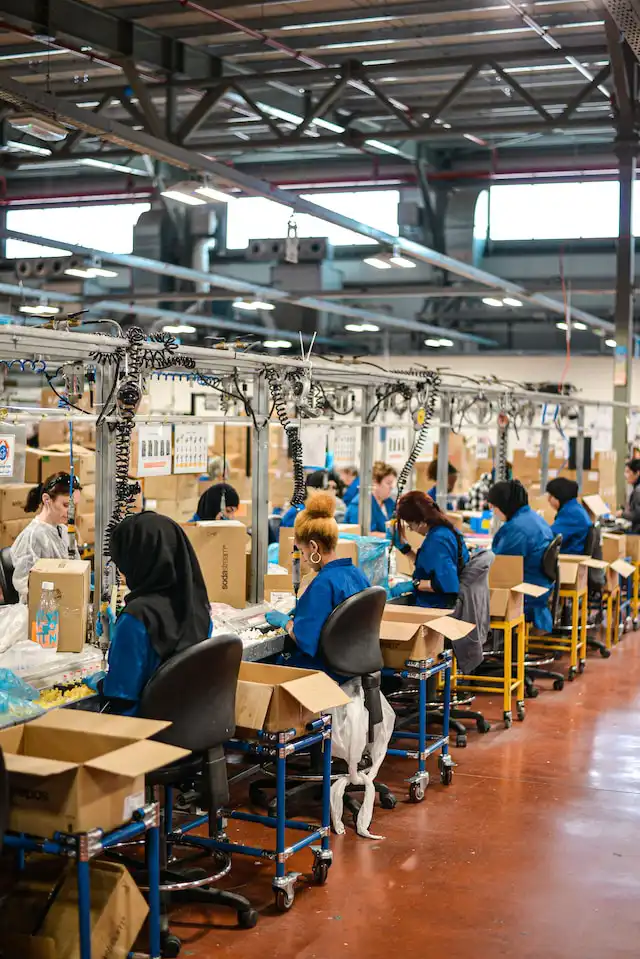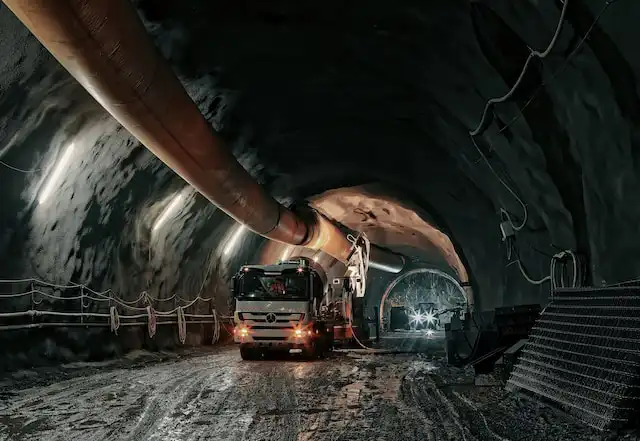
Philippines Cold Chain Market Outlook to 2025
Driven by Rising Processed Food Consumption Owing to Growing Millennial Population Albeit Infrastructure Challenges
Region:Asia
Author(s):Aarsh Gugliani
Product Code:KR968
October 2020
130
About the Report
Click on the link for Philippines Cold Chain Market Outlook to 2026F

Philippines Cold Storage Market: Cold storage business has been the major growth driver for cold chain industry. Estimated number of accredited cold storages by Department of Agriculture in Philippines increased from 256 in 2016 to 316 by the year 2019. A high occupancy rate is also observed for facilities during peak season such as Ber season for meat and seafood, sometimes exceeding 100% capacity thereby forcing companies to act as mediators between the clients and their sister/partner companies. Some of the leading cold storage players in the industry include Jentec Storage, Glacier Megafridge, Mets Logistics, Royal Cargo, Big Blue Logistics, Royale Cold Storage, ORCA Cold Chain, Vifel Ice Plant and Cold Storage, Koldstor and Polar Bear Freezing and Storage Corporation. The sector has also witnessed support from the government which increased its subsidy for cold storages to PHP 0.9 million during 2017 to 2019.
Philippines Cold Transport Market: Cold transport market has been defined as movement of temperature sensitive products along the supply chain using thermal and refrigerated packaging techniques and logistical planning to prolomg the shelf life of consigmnents. The several methods for transporting products include refrigerated trucks and railcars, refrigerated cargo ships and air cargo. Moreover, it is the 4, 6 and 8 wheeler reefer trucks with a capacity ranging between 1 to 10 tons which can be seen plying the roads of Philippines. These are primarily used for delivery over short distances whereas 20 footer and 40 footer reefer trucks are used to deliver products over long distances. For instance, product movement from fish port complexes to ante rooms and cold storages incorporate such large sized trailers. Infrastructural development by government through construction of new inter-island bridges and paved roads has propelled the cold transport business. Increasing exports of fruits and vegetables after blast freezing to the west especially United States has also supported this industry.
Philippines Cold Chain Market Competition Scenario: Competition in the Philippines cold chain market is moderately fragmented as the major 5 players including Jentec Storage, Glacier Megafridge, Mets Logistics, Royal Cargo and Big Blue Logsitics were observed to account for majority share in the market in terms of numer of cold storage pallets in 2019. Additonally, cold chain companies were competing on parameters such as location, price, temperature range and level of integrated services. These companies also focus on marketing their products by directly scheduling meetings with potential clients and also heavily invest in social media marketing. Majority of the competition has been observed to house in the island group of Luzon which was estimated to account for more than 200 cold storages in 2019.
Philippines Cold Chain Market Future Outlook: Philippines cold chain market is expected to register a positive CAGR of 9.9% during 2020-2025 owing to mounting food service industry, change in lifestyle and consumption habits, increasing infrastructure investment to improve connectivity for cold transport business, high domestic demand for fish, seafood and meat products, growing focus on ISO and LEED certifications for cold storages, automation in cold storages through ASRS, WMS and RFID and incorporation of quick or blast freezing services. However, despite the augmenting demand for most cold storage products in the country, the market is facing challenges that will affect the business decisions, both in investment planning and operations management. These issues will be the cost of doing business such as having to wade through government’s bureaucracy and to cope with unexpected and unplanned costs which are extra costs which exert adverse impact on the industry overall competitiveness.
Key Topics Covered in the Report
- Executive Summary
- Research Methodology
- Ecosystem of Philippines Cold Chain Market
- Infrastructural Analysis of Philippines
- Value Chain Analysis of Philippines Cold Chain Market
- Comparative Analysis of Philippines with Other Cold Chain Markets Philippines Cold Chain Market
- Philippines Cold Storage Market
- Philippines Cold Transport Market
- Regulatory Landscape of Philippines Cold Chain Market
- Trends and Developments in Philippines Cold Chain Market
- Issues and Challenges in Philippines Cold Chain Market
- Decision Making Parameters for End Users in Philippines Cold Chain Market
- SWOT Analysis of Philippines Cold Chain Market
- Competitive Landscape in Philippines Cold Chain Market
- Macroeconomic Factors Impacting Philippines Cold Chain Market
- Analyst Recommendations
Products
Key Target Audience
- Cold Storage Companies
- Cold Chain Companies
- Cold Transport Companies
- Captive Cold Storage Companies
- Captive Cold Chain Companies
- Logistics Companies
- Non-captive Companies
- Cold Chain Associations
- Logistics Associations
- Private Equity Firms
- Venture Capitalists
Time Period Captured in the Report:
- Historical Period: 2014-2019
- Forecasted Period: 2020F-2025F
Companies
Key Segments Covered
Types of Products:
- Meat and Seafood
- Fruits and Vegetables
- Dairy Products
- Bakery and Confectionary
- Vaccination and Pharmaceuticals
- Others (Include animal feed, hotdogs, burgers, fries, chemicals and several others)
Companies Covered:
- Jentec Cold Storage
- Glacier Megafridge
- Mets Logistics
- Royal Cargo
- Big Blue Logistics
- Royale Cold Storage
- ORCA Cold Chain
- Vifel Ice Plant & Cold Storage
- Koldstor Inc.
- Polar Bear Freezing Services
- Frabelle Cold Storage
- Arctic Cold Storage
- Igloo Supply Chain
- Antarctica Cold Storage
- VVS Cold Storage
- Crystal Cold Storage
- Benson Industrial Cold Storage
- JM Processing
- Cold Chain Warehouse Specialist
- San Simon Cold Storage
- Cebu Subzero Logistics
- Estrella Cold Storage
- WCL Cold Storage
- Technofreeze
- Aspen Cold Storage
Table of Contents
1. Executive Summary
2. Research Methodology
2.1. Market Definitions
2.2. Abbreviations
2.3.Market Size and Modeling
Research Methodology
Sample Size Considered, 2019
Limitations
Variables (Dependant and Independent), 2018
Multi Factor Based Sensitivity Model
Final Conclusion
3. Ecosystem of Philippines Cold Chain Market
4. Infrastructural Analysis of Philippines
4.1.Road Network in Philippines
4.2. Seaports in Philippines
4.3. Airports in Philippines
5. Value Chain Analysis of Philippines Cold Chain Market
6. Comparative Analysis of Philippines with Other Cold Chain Markets, 2018
6.1. Cross Comparison of Philippines Cold Chain Market with Leading Cold Chain Economies (India and China)
By Cold Storage Capacity, 2018
6.2.Cross Comparison of Philippines Cold Chain Market with Southeast Asian Countries (Vietnam, Indonesia, Malaysia and Thailand), 2019
7. Philippines Cold Chain Market, 2014-2025F
7.1. Philippines Cold Chain Market Overview
Philippines Cold Chain Industry Cycle
Timeline of Major Players
7.2. Philippines Cold Chain Market Size, 2014-2019
7.3. Philippines Cold Chain Market Segmentation, 2014-2019
7.3.1. By Type of Market (Cold Storage and Cold Transport), 2014-2019
7.3.2. By Products (Meat and Seafood, Fruits and Vegetables, Dairy Products, Bakery and Confectionary, Vaccination and Pharmaceuticals and Others), 2019
7.4. Philippines Cold Chain Market Future Outlook and Projections, 2020F-2025F
Future Strategies of Companies in Philippines Cold Chain Market
Emerging Technologies in Philippines Cold Chain Market
7.4.1. By Type of Market (Cold Storage and Cold Transport), 2020F-2025F
7.4.2. By Products (Meat and Seafood, Fruits and Vegetables, Dairy Products, Bakery and Confectionary, Vaccines and Pharmaceuticals and Others), 2025F
8. Philippines Cold Storage Market, 2014-2025F
8.1. Philippines Cold Storage Market Size, 2014-2019
8.1.1. By Revenue, 2014-2019
8.1.2. By Number of Cold Storage Warehouses (CSWs), 2014-2019E
8.1.3. By Cold Storage Capacity in Pallets, 2019
8.1.4. By Average Storage Rental Price for Cold Storage Pallets, 2019
8.2. Philippines Cold Storage Market Segmentation, 2019
8.2.1. By Ownership (Captive and Non-Captive Warehouses), 2019E
8.2.2. By Temperature (Frozen and Ambient), 2019E
8.2.3. By Level of Automation (Automated and Non-Automated Pallets), 2019E
8.2.4. By Island Group (Luzon, Mindanao and Visayas), 2019E
By Regions in Philippines
Cost Composition of Cold Storages in Philippines
8.3. Philippines Cold Storage Market Future Outlook and Projections, 2020F-2025F
8.3.1. By Revenue, 2020F-2025F
8.3.2. By Number of Cold Storage Warehouses (CSWs), 2020F-2025F
8.3.3. By Cold Storage Capacity in Pallets, 2020F-2025F
8.3.4. By Average Storage Rental Price for Cold Storage Pallets, 2020F-2025F
8.3.5.Philippines Cold Storage Market Future Segmentation, 2025F
By Ownership (Captive and Non-Captive Warehouses), 2025F
By Temperature (Frozen and Ambient), 2025F
By Level of Automation (Automated and Non-Automated Pallets), 2025F
By Island Group (Luzon, Mindanao and Visayas), 2025F
9. Philippines Cold Transport Market, 2014-2025F
9.1.Philippines Cold Transport Market Size, 2014-2019
9.1.1.Market Overview
9.1.2. Market Size by Revenue, 2014-2019
9.1.3. By Number of Reefer Trucks, 2014E-2019E
9.2. Philippines Cold Transport Market Segmentation, 2019
9.2.1. By Mode of Transport (Sea, Air, Land), 2019
By Mode of Land Transport (40 Foot Reefers, 20 Foot Reefers and Others), 2019
9.2.2. By Destination (Domestic and International), 2019
Meat and Seafood
Fruits and Vegetables
Dairy Products
Pharmaceutical Products
Bakery and Confectionary Products
9.2.3. By Vicinity (Inter-island and Intra-island), 2019
Cost Composition of Cold Transport in Philippines
9.3. Philippines Cold Transport Market Future Outlook and Projections, 2020F-2025F
9.3.1. By Revenue, 2020F-2025F
9.3.2. By Number of Reefer Trucks, 2020F-2025F
9.3.3. Philippines Cold Transport Market Future Segmentation, 2025F
By Mode of Transport (Sea, Air, Land), 2025F
By Destination (Domestic and International), 2025F
By Vicinity (Inter-island and Intra-island), 2025F
10. End User Analysis of Philippines Cold Chain Market, 2014-2025F
10.1. Meat and Seafood Companies
10.2. Fruits and Vegetables Companies
10.3. Dairy Companies
10.4. Pharmaceutical Companies
10.5. Bakery and Confectionary Companies
10.6. Processed Food Companies, Restaurants and Kitchens
11. Decision Making Parameters for End Users in Philippines Cold Chain Market
12. Regulatory Landscape of Philippines Cold Chain Market
12.1. Cold Storage Market
12.1.1. Major Cold Storage Projects by Government
Snaphsot on Philippines Cold Chain Project (PCCP), 2014
12.1.2. Accreditation Process of Cold Storages by NMIS
12.1.3. Accreditation Levels of Cold Storages
12.1.4.Incentives by Board of Investments (BOI)
Incentive on Geographical Consideration
General Incentives Applicable for Cold Storage Investors
Incentives on Equipments
Income Tax Holiday by BOI
Incentives Involving Exemptions
Incentives Including Deducations from Taxable Income
Non Fiscal Incentives by BOI
12.2.Cold Transport Market
12.2.1. Regulatory Authorities by Mode of Transport (Land, Sea and Air)
Land Transport
Sea Transport
Air Transport
12.2.2. Regulations by Type of Products (Meat and Seafood, Fruits and Vegetables, Dairy and Pharmaceuticals)
Meat and Related Products
Fisheries and Aquatic Products
Fruits and Vegetables
Dairy Products
Pharmaceutical Products
13. Growth Drivers and Trends in Philippines Cold Chain Market, 2014-2019
Increasing Medicaments’ Imports
Growing Demand for Meat Products
Consistent Production of Fish and Seafood
Change in Lifestyle and Rise in Consumption of Processed Foods
Increase in Restaurants and Food Related Establishments
14. Issues and Challenges in Philippines Cold Chain Market, 2014-2019
Frequent Power Outages Cold Storage Business
Increasing Expenditure on Electricty
Lack of Proper Infrastructure
Insufficient Cold Storage Pallets Resulting in High Food Wastage
Philippines: A Country Prone to Frequent Natural Calamities and Disasters
Expensive Certifications
Ongoing Truck Ban in Philippines
15. SWOT Analysis of Philippines Cold Chain Market
16. Competitive Landscape in Philippines Cold Chain Market
16.1.Competition Scenario in Philippines Cold Chain Market, 2019
16.2. Cross Comparison of Major Players by Major Locations and Frozen Pallet Rental Price
16.3. Cross Comparison of Major Players by Occupancy Rate and Number of Reefer Trucks
16.4.Strengths and Weaknesses of Major Players (Jentec Storage, Glacier Megafridge, Mets Logistics, Royal Cargo and Big Blue Logistics)
16.5.Company Profiles of Major Players in Philippines Cold Storage Market, 2019
16.5.1. Jentec Storage
16.5.2. Glacier Megafridge
16.5.3. Mets Logistics
16.5.4. Royal Cargo
16.5.5. Big Blue Logistics
16.5.6. Royale Cold Storage
16.5.7. ORCA Cold Chain
16.5.8. Vifel Ice Plant and Cold Storage
16.5.9. Koldstor
16.5.10. Polar Bear Freezing & Storage Corporation
16.6.Company Profiles of Major Players in Philippines Cold Transport Market (Royal Cargo, Jentec Storage and Glacier Megafridge), 2019
17.Analyst Recommendations
17.1. Analyst Recommendations to the Government
Reducing Cost of Electricity
Improve Coordination between Government and Private Sector
Easing Port Congestion
Reduce Cost of Certification
Adopt Common Inspection Policy
Focus on Improving Infrastructure
Weeding out Old Trucks
17.2. Analyst Recommendations to Cold Chain Companies
Expansion in Untapped Areas
Increase Tie-ups with Companies
Training of Cold Chain Personnel
Increase Freezer and Blast Freezer Rooms
Disclaimer
Contact Us
Why Buy From Us?

What makes us stand out is that our consultants follows Robust, Refine and Result (RRR) methodology. i.e. Robust for clear definitions, approaches and sanity checking, Refine for differentiating respondents facts and opinions and Result for presenting data with story

We have set a benchmark in the industry by offering our clients with syndicated and customized market research reports featuring coverage of entire market as well as meticulous research and analyst insights.

While we don't replace traditional research, we flip the method upside down. Our dual approach of Top Bottom & Bottom Top ensures quality deliverable by not just verifying company fundamentals but also looking at the sector and macroeconomic factors.

With one step in the future, our research team constantly tries to show you the bigger picture. We help with some of the tough questions you may encounter along the way: How is the industry positioned? Best marketing channel? KPI's of competitors? By aligning every element, we help maximize success.

Our report gives you instant access to the answers and sources that other companies might choose to hide. We elaborate each steps of research methodology we have used and showcase you the sample size to earn your trust.

If you need any support, we are here! We pride ourselves on universe strength, data quality, and quick, friendly, and professional service.















